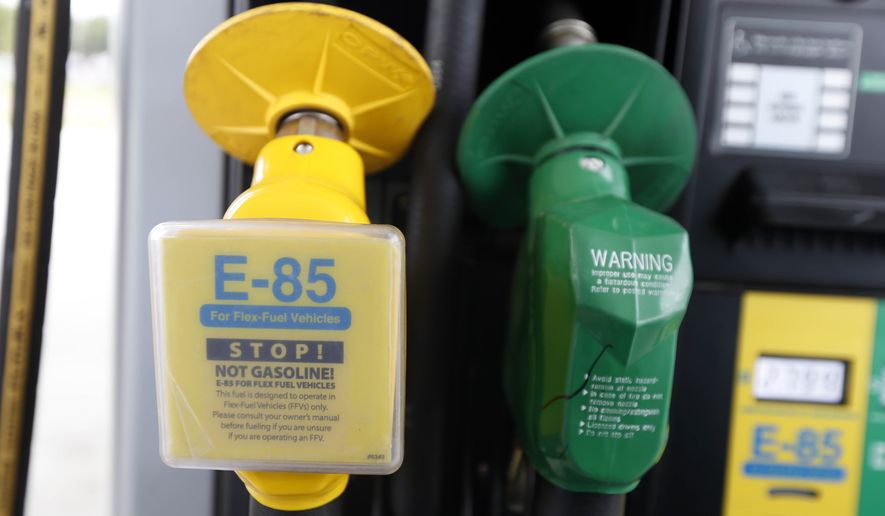Good intentions can’t make up for bad policy. That is particularly true in the case of ethanol.
The Renewable Fuel Standard (RFS) requires that the nation’s gas supply be mixed with biofuels – the most popular of which is ethanol. The Environmental Protection Agency (EPA) just bolstered the RFS by mandating that 18 billion gallons of renewable fuels be added next year.
But the RFS has been a disaster from the start. While originally created to wean the United States off oil from foreign nations and to help the environment, the law has failed on both accounts.
Rather than working to strengthen the ethanol mandate, the EPA should get rid of the scheme altogether.
Environmentalists originally championed the RFS. They claimed ethanol would reduce air pollution and greenhouse gas emissions. And since much of the ethanol in the United States is made from corn, many farmers supported federal efforts to drive up its production.
Congress got behind ethanol in a big way, passing the Renewable Fuel Standard in 2005. Lawmakers claimed the standard would help reduce reliance on hostile, yet oil-rich countries.
But the RFS is now unnecessary. The United States is currently enjoying a boom in domestic oil production. As a result, Uncle Sam imported only about one-quarter of the oil it used last year – the lowest level since 1985. And the United States recently surpassed Russia and Saudi Arabia as the world’s top producer of oil and natural gas.
Moreover, the production of ethanol has caused food prices to increase dramatically. From 2006 to 2012, farmers dedicated 20 million additional acres to corn production to accommodate the RFS mandates for more ethanol. That’s created less space for other food products, costing businesses big bucks. By one estimate, the RFS has increased food costs for chain restaurants by $3.2 billion annually.
Then there’s the environmental damage. The ethanol market has greatly skewed America’s farm production toward corn. In 2000, 90 percent of our corn was used for food and livestock feed. By 2013, ethanol accounted for 40 percent of the corn crop. This relentless demand for ethanol has pushed farmers to plow up millions of acres of grasslands, often obliterating critical wildlife habitats.
The Environmental Working Group warns that the conversion of so much grassland could lead to the same Dust Bowl conditions that blighted the Midwest in the 1930s. The increase in corn production accelerates soil erosion and causes greater run-off from fertilizers and pesticides.
Worst of all, the Renewable Fuel Standard has proven completely pointless because ethanol doesn’t actually reduce greenhouse gas emissions. According to a recent study in Environmental Research Letters, U.S. grassland conversions for ethanol production produced the same level of carbon emissions annually as 28 million cars. The International Institute for Sustainable Development has also given the thumbs-down to ethanol, noting that its production results in no net reduction in atmospheric CO2.
In short, the ethanol mandate, a policy explicitly designed to help the environment, has instead increased American carbon emissions and destroyed vital wildlife resources. And now that the EPA is mandating even more biofuels be added to the gas supply, these consequences will only be magnified.
The Renewable Fuel Standard is a bust. It’s costing consumers big bucks and hurting the environment. Congress should end this failed policy.




Please read our comment policy before commenting.